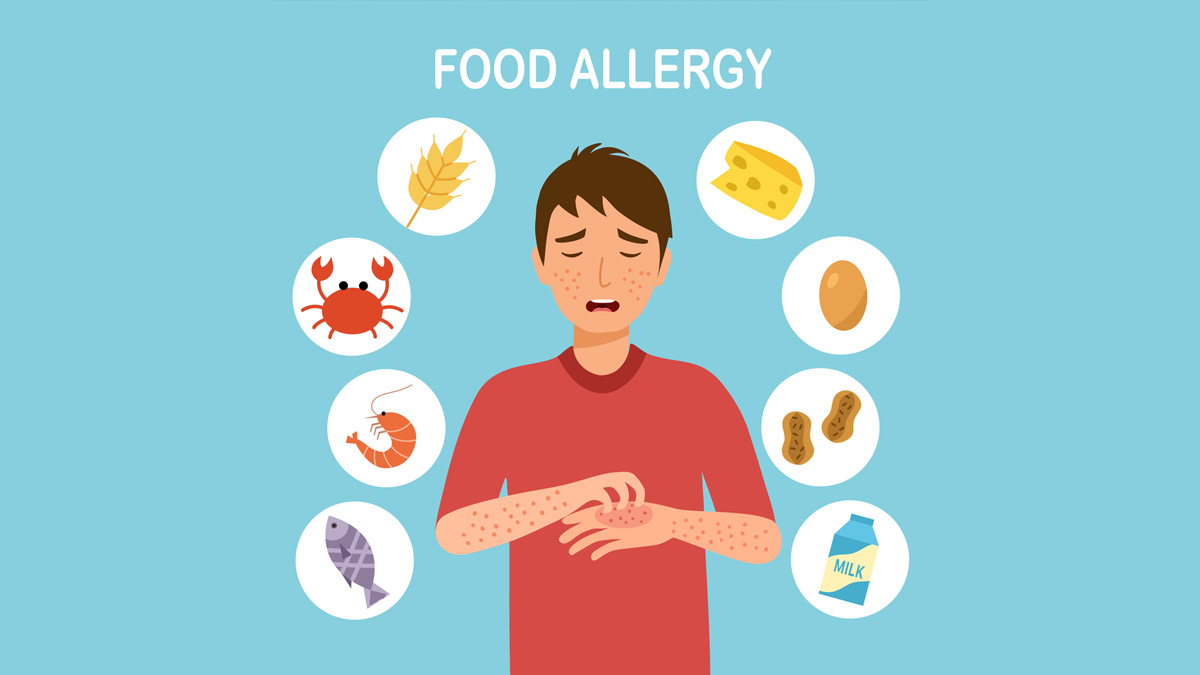
Living with food allergies can present daily challenges. The consequences of an allergic reaction can vary from mildly inconvenient to potentially life-threatening. Since there is no cure, individuals with a food allergy must remain constantly vigilant. With the right knowledge and strategies, it is possible to thrive while safeguarding your health. We spoke to our expert Eshanka Wahi, Culinary Nutritionist, Holistic Wellness Coach, Founder, Eat Clean With Eshanka, who listed tips that you should follow to manage your food allergies.
Table of Content:-
According to a 2016 study, food allergies have a significant morbidity rate that lowers quality of life on a daily basis. An estimated 2-10% of people have a food allergy, with prevalence higher in children than in adults.
Tips To Manage and Prevent Food

Identify The Allergen
First and foremost, it's crucial to identify your specific food allergens. This requires thorough testing and consultation with a healthcare professional, such as an allergist or immunologist. Once you know which foods trigger your allergic reactions, you can take proactive steps to avoid them.
Read Food Labels
Reading food labels diligently is paramount. Wahi said, “Manufacturers are required to list common allergens, such as peanuts, tree nuts, milk, eggs, soy, wheat, fish, and shellfish, on their packaging. However, it's essential to remain vigilant as formulations can change, and cross-contamination may occur during production.”
Also Read: From Itchy Skin Rashes To Swelling In The Mouth, Warning Signs Of Wheat Allergy

Inquire About The Ingredients
Wahi added When dining out or eating at social gatherings, don't hesitate to inquire about ingredients and food preparation methods. Many restaurants are accommodating to food allergies and can modify dishes to suit your needs. Additionally, consider carrying an allergy card or wristband that communicates your allergies to restaurant staff or friends hosting gatherings.
Be Prepared
While avoidance is the cornerstone of managing food allergies, accidental exposure can still happen. That's why it's essential to be prepared with an action plan. Wahi highlighted, “Keep emergency medication, such as epinephrine auto-injectors, readily accessible at all times. Educate yourself and those around you on how to recognise the signs of an allergic reaction and administer medication promptly if needed.”

Maintain Balanced Diet
In addition to avoiding allergens, maintaining a well-balanced diet is crucial for overall health and immune function. When eliminating certain foods from your diet, be mindful of nutritional gaps that may arise. Work with a registered dietitian or nutritionist to ensure you're meeting your nutrient needs through alternative sources. For example, if you're avoiding dairy, consider fortified plant-based milk and calcium-rich foods like leafy greens and tofu.
Also Read: From Papaya To Tomato: 7 Foods You Should Avoid If You Have Latex Allergy
Focus on Whole Foods
You should focus on incorporating whole, unprocessed foods into your meals whenever possible. Fresh fruits, vegetables, lean proteins, whole grains, and healthy fats not only provide essential nutrients but also support optimal immune function and reduce inflammation.
Empower Children and Caregivers
For individuals with severe food allergies, particularly children, it's essential to foster open communication and education within the family and community. “You should teach children to advocate for themselves, recognise allergens, and safely manage their condition. Empower them to ask questions, speak up about their dietary needs, and assertively decline unsafe foods”, emphasised Wahi.
Educate caregivers, teachers, and other adults involved in your child's life about their food allergies and emergency protocols. Encourage the establishment of allergy-safe environments at school, daycare, and extracurricular activities to minimise the risk of accidental exposure.
Prioritise Self-Care
Don't forget to prioritise self-care and stress management as part of your overall wellness routine. Living with food allergies can be emotionally taxing, and stress can exacerbate symptoms and impact immune function. Practice relaxation techniques, such as deep breathing, meditation, yoga, or engaging in hobbies that bring you joy and fulfilment.
Bottomline
Wahi concluded, “Living with food allergies requires a multifaceted approach that combines diligent avoidance, preparedness, nutritional support, and education. By adopting proactive strategies and seeking support from healthcare professionals and community resources, people with food allergies can lead fulfilling lives while prioritising their health and well-being.”
[Disclaimer: This article contains information provided by an expert and is for informational purposes only. Hence, we advise you to consult your expert if you are dealing with any health issues to get the necessary treatment.]
Also watch this video
How we keep this article up to date:
We work with experts and keep a close eye on the latest in health and wellness. Whenever there is a new research or helpful information, we update our articles with accurate and useful advice.
Current Version